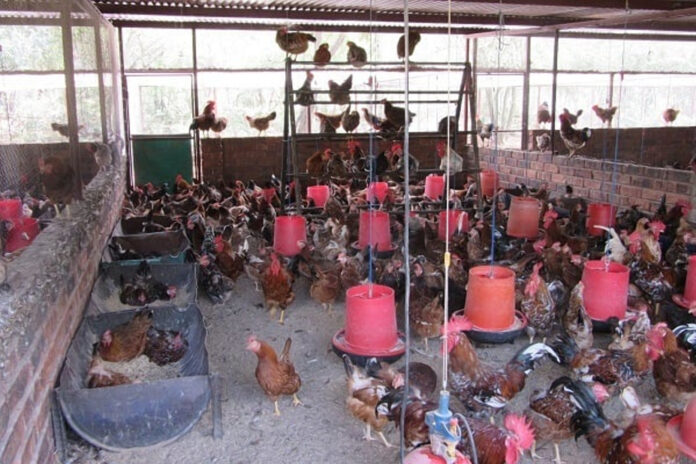One of the worst nightmares of chicken farmers in many parts of the world, including Kenya, is the Newcastle chicken disease, which is caused by the Newcastle disease virus.
The infection is generally referred to as Newcastle, named after the town in the United Kingdom where it was identified in 1927.
In 1926, Newcastle had also been identified in Java, Indonesia, but not given a name. Newcastle may have been with man as early as 1898 when a disease with similar description wiped out all the chicken in Northwestern Scotland.
The very virulent (infective) form of Newcastle kills up to ninety percent of birds in infected flocks. The birds that survive remain weak and have poor growth and production.
Like most diseases caused by viruses, Newcastle has no cure. It is however prevented using the Newcastle vaccine that should be given to both commercially farmed chicken and indigenous chicken.
Newcastle chicken disease is effectively prevented in chickens using a vaccine that in most cases gives full protection against the disease.
No farmer should, therefore, lose their birds to the Newcastle chicken disease as the vaccine is also fairly affordable and the farmer can administer it to the chicken without the help of an animal health expert.
Many farmers are known to use a variety of traditional and herbal therapies with a view to treating or preventing Newcastle chicken disease but the only known prevention of this chicken disease is vaccination.
Meet Kenyan farmer using chicken poop to power his home, car, cooker, water boiler
Traditional therapy may in some cases be seen to work because the birds may not have been suffering from Newcastle or they may have contracted the mild form of the disease that kills only about 10 percent of the birds.
Other birds may never catch Newcastle and the owner may think it is because of traditional therapy. However, there is a type of Newcastle virus that causes very mild signs in infected birds and very few deaths.
Birds recovering from the mild infection develop immunity against the Newcastle virus infection and this may lead chicken keepers to believe that their chickens are resistant to Newcastle.
The Newcastle virus is transmitted when healthy birds get into contact with droppings and other excretions from infected birds; and through contact with contaminated food, water, equipment, and clothing.
From the time the birds are exposed to the disease, they take between three and five days to show the symptoms of the disease.
Newcastle causes sudden infection of many birds with many deaths, heavy drop in egg laying, discharge from the nose, sneezing, bloody diarrhea which may also be greenish or whitish, tremors, incoordination, depression, paralysis, weakness and twisting of the neck and turning it upwards. This neck twisting is known as torticolis.
Newcastle also affects many domestic and wild birds causing the same symptoms as in domestic chicken. It can infect humans, especially people working in poultry flocks that are infected or in poultry slaughterhouses. The disease causes inflammation of the eyes (conjunctivitis) and mild influenza like symptoms in humans.
Vaccination of birds against the Newcastle chicken disease starts at day-old in the hatchery level in most breeds. Some hatcheries recommend first dosage to be administered at day 7. The dose is repeated at day 18-21, at 8 weeks, 18 weeks then every 3 months thereafter. The regime may vary depending on the breed as well as location.
Availability of vaccines such as “ITA-NEW” from Ultravetis guarantees year-long protection against the disease when administered – through subcutaneous or intramuscular injection. The ‘ITA-NEW” vaccine should be used when administering the week 18 dose.
This means that the next dose will now be done after 1 year. It is more economical in the long run and there is also less stress to the birds since administration is once every 12 months as compared to the other regime where administration is every 3 months.









